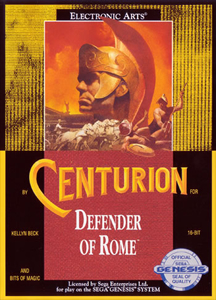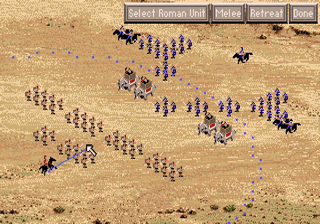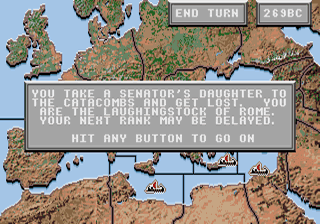The following account is an excerpt from Kevin Roberts’ book, Cyber Junkie: Escape the Gaming and Internet Trap, used with permission.
As video games crept into my life in middle school, we were still playing Atari, ColecoVision, and Intellivision.
 When I was around eleven or twelve years-old, my friend Tim had the new Atari. The neighborhood kids congregated at his house starting with the first day of summer. We were excited and felt privileged to be allowed there and to experience the cutting-edge video game technology.
When I was around eleven or twelve years-old, my friend Tim had the new Atari. The neighborhood kids congregated at his house starting with the first day of summer. We were excited and felt privileged to be allowed there and to experience the cutting-edge video game technology.
For almost a week, four or five of us passed whole days at Tim’s house. We took turns supplying the snack food, and we all chipped in for pizza. Tim’s mother quickly became alarmed at our sedentary ways and at first pleasantly suggested that we might have more fun if we played some baseball outside. Eventually, when we refused her gentle suggestions, she banned all kids from the house except for one hour a day and severely limited Tim’s game time.
Although some parents were leery of the new electronic forms of recreation and restricted our use of them, the games back then actually quickly became tiresome and were self-limiting. It was the early to mid-1980s, and the game systems and technology of this era were fairly primitive. It didn’t take a great deal of video game acumen to beat the game, and advancement through the different levels went by with predictable ease. The games lacked the interactive quality of today’s games, and playing a two-player game with a group of friends meant you had to take turns and spend a lot of time waiting. There was no chance that I would get my own game system, as my mother – like many parents – was suspicious of the new form of recreation and refused to buy one. She correctly surmised that such a purchase promised to lead me into an inactive lifestyle. Thus, I was relegated to friends’ houses to indulge. My mother’s wisdom prevented me from getting the gaming bug for many years.
The Hook: My Love of History – Friend and Foe
My love of history proved to be my Achilles’ heel. Some younger neighbor kids had a Sega Genesis system with graphics that were greatly enhanced over the likes of Atari. I was home from college for the summer, and these kids’ mother needed someone to stay with them during the day, so I agreed.
I became somewhat of a surrogate big brother and thrilled them with my mastery of one glorious game, Centurion: Defender of Rome. This multidimensional game allowed players to become a Roman official, work their way up the ranks, and, if successful, end up as commander of many Roman legions. I battled the Gauls, the Carthaginians, and the Parthian invaders. I became a master charioteer and bribed Roman officials, ultimately being crowned the Caesar of the empire!
I was so taken with the game that I would play for seven or eight hours straight. I would watch those kids whenever I was asked, as long as I could have at that game. I thought all day long about playing it and hungered to be Caesar. I was no longer imagining military conquest — I was in the center of it! The game was magical, fulfilling my history-based fantasies in ways I had not dreamed possible.
Hail Caesar!
The more I played, the more my desire to keep playing deepened. The neighbor family was about to leave on a two-week trip up north. “Oh my God,” I panicked. “How am I going to deal with two weeks of no game?” I had to have that game. The thought of not having it filled me with dread. I needed it, or at least I was convinced that I did.
 Faced with such a long absence from my precious game, I willingly, if not desperately, offered to take care of the family’s cat. Although they had planned on putting him in a kennel, they loved the idea that they could save money and be assured that the cat would receive some attention while they were gone. The cat would have gotten attention only if they had taken the Sega Genesis with them. When I was in the house, the cat was merely an afterthought. I filled two or three bowls with Friskies, filled a large water bowl, and let the cat fend for himself.
Faced with such a long absence from my precious game, I willingly, if not desperately, offered to take care of the family’s cat. Although they had planned on putting him in a kennel, they loved the idea that they could save money and be assured that the cat would receive some attention while they were gone. The cat would have gotten attention only if they had taken the Sega Genesis with them. When I was in the house, the cat was merely an afterthought. I filled two or three bowls with Friskies, filled a large water bowl, and let the cat fend for himself.
I slept at the neighbor’s house on the floor in front of the television. I stayed up until four or five in the morning playing the game, went to sleep for a few hours, and then got up only to play until I could no longer keep my eyes open. I could have taken the game system to my house, but that would have meant dealing with my mother, who would never have put up with the incessant gaming.
Playing the game at the neighbors’ house gave me a secret lair of video game serenity, the perfect flop house with creature comforts about which all addicts dream. I would be uninterrupted and left to pursue video game bliss. I remember waking up one morning and thinking of the Roman masses cheering, “Hail Caesar!” I thought that I would have made a great Roman emperor, and the game gave me a chance to test my skills.
What Happens If You Beat the Game?
The great thing about Centurion: Defender of Rome was that it had multiple levels of difficulty. After I became Caesar on one level, I would simply up the ante and play the next highest level. It took me the whole two weeks that my neighbors were on vacation to defeat all the levels.
Eventually I mastered the highest level, emperor. After my accomplishment, I was elated and deeply satisfied for about a day. These pleasant feelings gave way to depression because my fix was gone, but I still craved it. I later learned that it was the leveling up that held the thrill with this type of game. I had won every chariot race, subdued every province, and defeated the strongest of the barbarian hordes. No challenges were left. My daily thrill-of victory fix was thus eliminated.
 I tried playing the game again, handicapping myself in various ways to make it more challenging, but it wasn’t the same. The allure was gone. The reward had been in being able to go to the next level, and there were no new levels left to conquer.
I tried playing the game again, handicapping myself in various ways to make it more challenging, but it wasn’t the same. The allure was gone. The reward had been in being able to go to the next level, and there were no new levels left to conquer.
Now my motivation in general lagged, and instead of doing the errands and preparation I needed to get ready to go back to school, I moped around the house and watched television in a sort of stupor. The kids I had babysat kept calling, wondering why I hadn’t been coming over. I didn’t know what to tell them, so I just said I wasn’t feeling well.
A few weeks later I returned to college, and the busyness of the semester brought me out of my post-video game doldrums. I had the good sense that year to avoid games, and as a result I performed well in school. I was not bitten again by the video game bug for quite a while. But technology continued to advance and these new tantalizing possibilities would one day drag me deeper into addiction than I could have ever imagined.
Kevin Roberts is a recovering video game addict who offers help through support groups to assist others struggling with cyber addiction to get their lives back on track. He is a nationally recognized expert on video gaming addiction and a regular conference speaker. Cyber Junkie is his first book.

Recent Comments